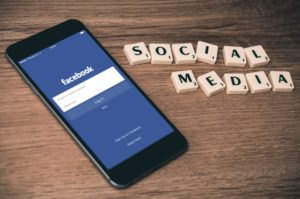Attention and focus have become targeted by companies as if they carry intrinsic value. Focus does not have a value unto itself, but its value varies on its use. You only have so much attention/mental energy you can pay out over the course of the day. When we try to multitask we become less effective[1, 2]. This means you should avoid all the little distractions that clamor for your attention and try to suck you away from your current task. Here are a few ways to limit the distractions in your work environment.
1. Turn off email alerts
Turn off the new email notification (here is how for Outlook). You don’t need to answer it right away. The person who sent it doesn’t need you to see it right away. If they did, they would call you. Email by its very nature is asynchronous. The beauty of it is that the message will still be there when you are ready to do email. This is just one of the several behaviors you can do to get a handle on your email.
2. Hide your phone (notifications)
The designers of the apps on your smartphone are not looking out for your best interest. They are doing all they can to make money. You can’t really blame them; they are doing their job. However, that doesn’t mean you have to help them. You can put your phone away entirely, turn it on “do not disturb” or silent and put it face down on the desk. At a minimum, you can go to the notification settings on your phone and turn most of them off. Do you really need an alert saying you have a new email? Does your game truly need to tell you to look at it now? These apps are self-important. You get to make the decision what is important, not the developers of your smartphone apps.
3. Turn off the television
Many workplaces have televisions for patrons enjoyment or for employees to stay on top of current events. 24-hour news channels put very little out that will affect your job over the next week, let alone over the next hour. Turn the TV off. Mute it, if you can’t do that. Turn off the gossip and hype machine and get back to work.

4. Close all social media
When was the last time you spent an hour on social media and thought you made the best use of your time? Unless social media is your job, the answer is probably “never.” It’s a new message. It’s shiny. And it is an utter waste of a professional’s time. You are accomplishing nothing of value for your organization while on social media. It may be a nice break from serious work, but when you are trying to do serious work it is only a distraction. Close all social media programs and browser tabs.
5. Write down distracting thoughts
No matter how much you limit external distractions, there will still be internal distractions. “Oh, I just remembered; I need to…get cat food, pick up dry cleaning, refill my prescription…” Whatever you remembered you need to do, write it down on a piece of paper and throw it in your inbox. You have recorded it and will get to it later. Your mind knows this and will let it go while you get back on your main task. You must put it somewhere you know you will revisit it soon or your mind will bring it up again, “Hey don’t forget to…”
References
- Kushniryk, Alla and Levine, Kenneth J. (2012) “Impact of Multitasking on Listening Effectiveness in the Learning Environment,” The Canadian Journal for the Scholarship of Teaching and Learning: Vol. 3 : Iss. 2 , Article 7.
- Benbunan-Fich, R. (2012). “The ethics and etiquette of multitasking in the workplace,” Technology and Society Magazine, IEEE, 31(3), 15-19
